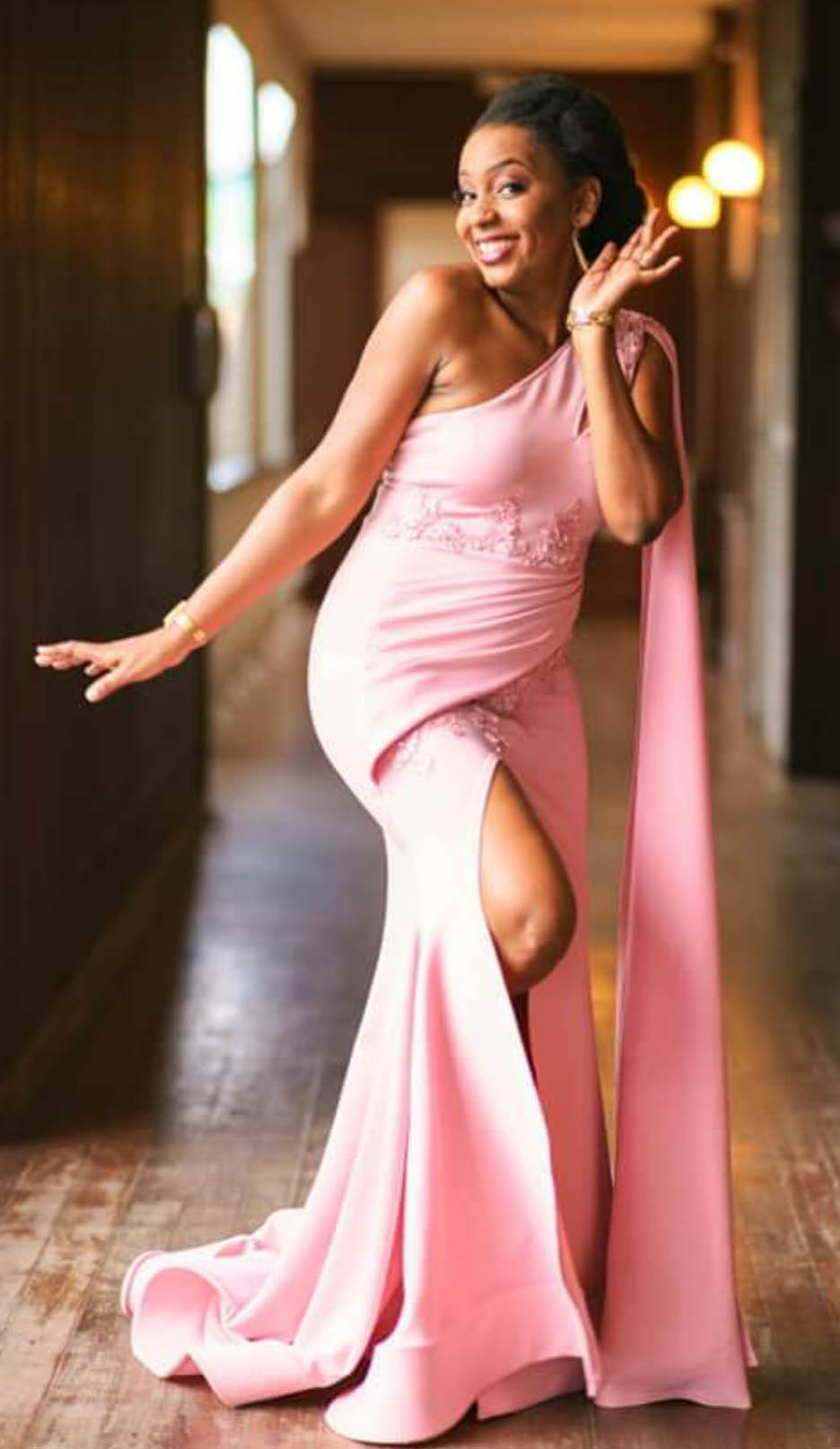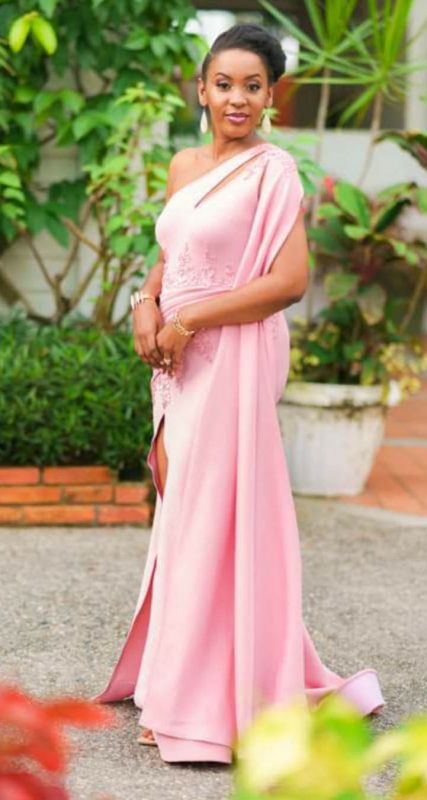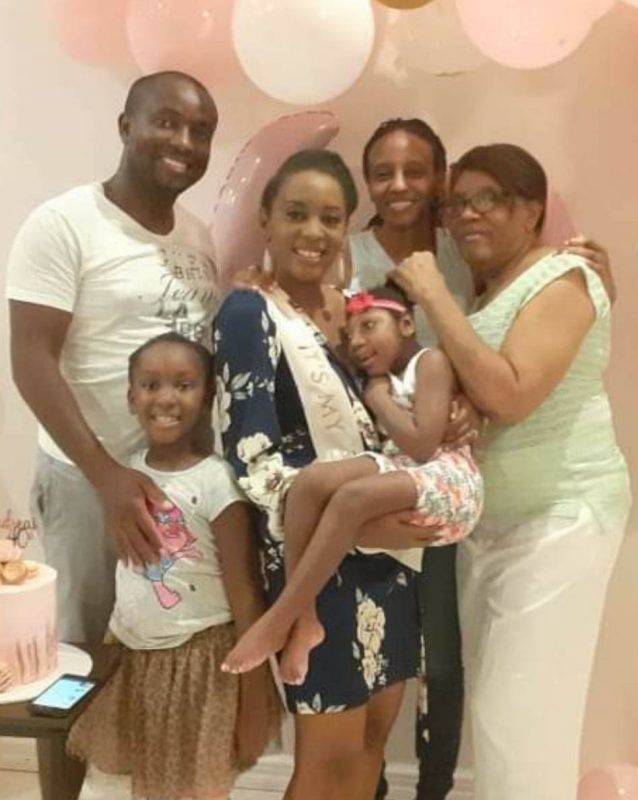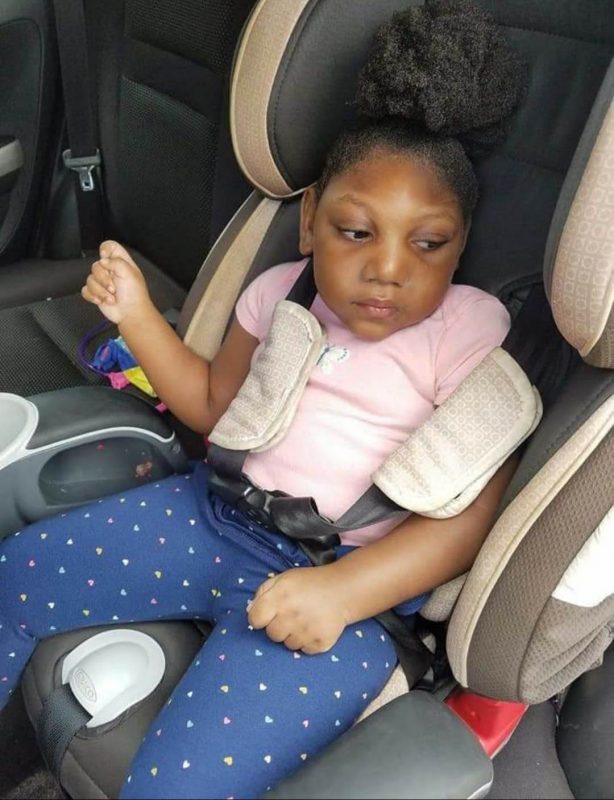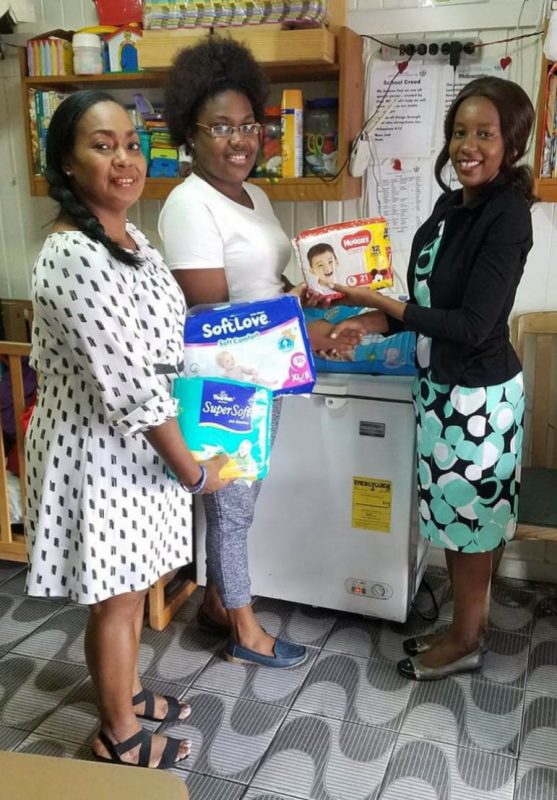Advocacy, volunteerism, youth work, television production and engagement in a number of extracurricular activities including sports and culture in her youth, prepared Andrea Bryan-Garner for the challenges of giving hope to herself and a group of mothers of children born with multiple disabilities following the Zika virus outbreak in January 2016.
“I have had to put together all my earlier learned skill set, advocacy, volunteerism, youth work to help me, and other parents to represent ourselves and our children who are voiceless. It is like everything has come together from the past and the present. I am like the mother of the group. They reach out to me when they need help in any way. I provide information. I have to be positive. Some in the group talk about giving up. We keep each other thinking positively,” she said.
Bryan-Garner, a television producer currently employed with the state-owned National Communications Network, is a wife and mother of two daughters. Her second daughter, Amariya, was born with microcephaly, a congenital Zika syndrome.
Microcephaly, according to the United States Centers for Disease Control and Prevention, is a birth defect where a baby’s head is smaller than expected when compared to babies of the same sex and age. The babies often have smaller brains that might not have developed properly.
In 2016 when Bryan-Garner was pregnant, an ultrasound revealed that the circumference of Amariya’s head was small and unusual. Microcephaly was suspected.
“Of course I was in denial at the time,” Bryan Garner said. “I had no Zika symptoms. It was confirmed she had microcephaly when she was born. That was devastating. Microcephaly comes with a whole host of disabilities all wrapped into one. She cannot walk, cannot talk, does not look at you and she suffers from seizures. When you’re pregnant you imagine your child would be running around and healthy.”
When Amariya was two months old, she was given the required vaccines and about two hours later she started experiencing seizures. According to Bryan-Garner, “At first she got multiple seizures every day but now she gets it sometimes once a month and the duration has reduced significantly. It was possible that the vaccine triggered an underlying condi-tion.” Medication provided by Georgetown Public Hospital has reduced the seizures.
Amariya smiles and has random giggles. “When she starts giggling, everybody stops and giggles with her as it’s very funny. You’ll know when she’s sleepy and when she’s hungry. You have to pay keen attention and understand her way of communicating. It is definitely a full time job. My mother looks after her when I am at work, or I couldn’t work,” Bryan-Garner said.
Amariya is one of about 20 babies who were born with microcephaly following the Zika outbreak but some did not survive. The Ministry of Health gave mandatory counselling at a workshop on coping mechanisms to the parents of the children born with microcephaly syndrome. The tests were not conclusive.
“A psychologist went through with me all this feeling of denial and disappointment. It helped to put things in perspective. It did not mean the end of the world. My child is still alive and I am not alone in this,” Bryan-Garner related.
Micro Mommies
At the workshop Bryan-Garner created a WhatsApp group called Micro Mommies so they could support each other. Mothers have been subjected to ridicule and discrimination by members of the public and their own families, she said. A nurse told one mother she was likely paying for a sin. Another stopped working because no one would hold her child. Others have been subjected to insensitive remarks, including ‘Like you sell yuh child fuh riches,’ and ‘You musee do something fuh cause duh’.
In the group the mothers talk about their challenges. “A support group is essential when we have to go through something like this,” Bryan-Garner noted. “It is a safe space to share pictures of our children as people could make derogatory remarks about them. We are like pioneers in this thing because the world did not experience a surge in microcephaly. We have to figure it out as we go along. Physiotherapy is helping to keep Amariya flexible. They taught us exercises to do at home so the children’s muscles do not become tight or deformed from inactivity. Every week Amariya does physiotherapy at Ptolemy Reid Rehabilitation Centre and I try to do it at home every day.”
Giving up was never on her mind but she said she questioned why God allowed a child into the world to suffer. She has since adapted to the new normal with support and counselling.
“When you see her smile and hear her giggle, you realise she is just different. This is how she knows her life to be. Sometimes she would cry when she has seizures. That is when I feel helpless,” she added.
Her lowest point, she said, was when the hospital told her that Amariya could not see. “I cried all the way, with her in my hands, from the hospital to the car. She already can’t walk. She can’t talk and now they were telling me she can’t see,” she recalled.
The family celebrates little milestones like Amariya being able to sit by herself for five seconds, Bryan-Garner said, “You put more value in little things.”
Most of the mothers cannot work because they are unable to find people who are willing to look after their children. “Regular day care centres don’t accept them,” Bryan-Garner informed. “Some of the women are single parents. In some cases, the fathers disappeared after they realised the children had multiple disabilities. That took a toll on the women emotionally.”
The children cannot be potty-trained and have to use diapers for the rest of their lives. After a friend gave her some boxes of diapers which her child who was no longer using, Bryan-Garner launched a diaper drive to obtain diapers and wipes to help the other mothers.
“We also accept Nestum cereals as the children can only use pureed food because their muscles are weak and they choke on solid foods,” she added.
Micro Mommies has received assistance in cash or kind from time to time from the Welfare Department of the Ministry of Education, Maternal and Child Health Unit of the Ministry of Health, the United Women’s Children with Disabilities, AME Church Truth Ministries, and friends and strangers both at home and abroad. The mothers also receive a monthly disability public assistance from the Ministry of Human Services and Social Security. They recently received a disability cash grant from the government.
Bryan-Garner would like to acquire wheelchairs for the children next year to help them with mobility so they can be involved in daily activities. “We also have to take them to physiotherapy. If there is anyone willing to help with getting them wheelchairs that could strap their heads and chests, or children’s wheelchairs with harnesses, that would really help,” she said.
Noting that only the Ptolemy Reid Rehabilitation Centre provides day care facilities for children with special needs, Bryan-Garner said there is need for more to enable mothers to work.
Life before
Bryan-Garner of Nonpareil Park, East Coast Demerara, was born in Georgetown. She attended the Bishops’ High School from 1993 to 2000.
“My high school days were fun and carefree and they fashioned who I am today,” she noted. “I was the student who was always picked to do the vote of thanks because I liked to talk and make speeches. I represented the school in elocution and debating competitions and I was involved in drama and stage productions.”
She was a house captain, played table tennis and field hockey, was a member of the Girl Guides Association and dabbled in painting, handicraft and designing clothes. “Although I was involved in these extracurricular activities, they didn’t hamper my academic performance,” she said.
Her professional life began when she was 16 years after she was spotted reading an essay on what it was like going into adulthood on camera, at the then GTV station by a television producer who invited her to co-host the show, Children’s Prime Time.
“That was my first exposure to television production and hosting a show,” she stated. After leaving school she became an assistant to the producer at GTV.
While at GTV she pursued a bachelor’s degree in international relations at the University of Guyana because “Communications at UG at that time wasn’t exciting,” she said.
She was at GTV from 2002 to 2007.
In 2006, she became involved in youth work and advocacy following a workshop held in Suriname where she and five others were chosen to represent Guyana. After that workshop, the participants formed a non-governmental organisation, Youth Media Guyana, with support from UNICEF, to create a space where young people could express themselves using the media and create their own digital content.
“We were doing social media stuff with a point-and-shoot camera and using drama to act out whatever social issues we wanted to convey,” she recalled. “We put together a short film and screened it at the end of the digital playground workshops which we held. We had no smartphones. We did that all over the country including hinterland locations.”
They also focused on interviewing young people at events while the mainstream media focused on the main speakers.
In 2012, based on her work in youth media she again represented Guyana in a United Nations Development Programme Think Tank where Caribbean youths came together to find solutions facing young people in the region.
For volunteerism and working with youth, she was recognised with a National Youth Award from the Ministry of Culture Youth and Sport.
She also got married in 2012 and had her first child in 2014 and the second in 2016. She began working out of her home, looking after the children while earning an income. “I was an entrepreneur/housewife. The good thing is that it was mainly consultancy and I could work with my schedule. My mother would help if I had to meet a client or go on location,” she said.
In 2018, she and her business partner, Loretta Mentore-Nicholson, who had worked with her at GTV, registered their company, Pro Media, doing television production especially for different international organisations with a focus on development.
In 2019, she returned to NCN as a programme developer in radio and television. This year, she was reassigned to managing social media platforms to ensure that NCN’s content, especially the news, is available online.
“What I like about the media is that you never stop learning. It is not a desk job where you do the same thing day in and day out, especially when you have to do documentaries and mini-features. You meet different people and go to different places. Because of the media I have visited all ten regions of Guyana. I travelled overseas to different journalism workshops. I went to China to do a documentary from the perspective of a Guyanese. Hadn’t it been for the media, I wouldn’t have had those opportunities because of the high costs of travel,” she said.
In 2019, Bryan-Garner promoted Mashramani through a series of online features, called “Dialogue,” involving members of the Diaspora and for broadcast on NCN.
“I was doing this virtually, something people weren’t into,” she noted. “The technology was available to us, so it was a kind of pioneering virtual show idea. COVID-19 hit soon after. I broadcast from home as well. It was not only using the technology but the content and talking about Guyanese culture at home and abroad. We looked at various art forms, trying to understand our culture as we are always struggling with our Guyanese identity.”
She was able to do this she said, “As a result of my experience with Youth Media, that is, using technology to create media content and being an entrepreneur, basically using information communication technology in our work.” For this pioneering effort the Guyana Cultural Association of New York Inc presented her with the Guyana Folk Festival Award in 2019.
Bryan-Garner also loves to cook and bake using as many local ingredients as possible.
“I save a lot of money and earn by doing my own baking. People are always eating, so food is a good option if you are a stay-at-home mom. It is time consuming, but there is a payoff once you have a client base. I worked with myself for ten years. There are many avenues to learn some skills, not just academics,” she said.
When she was pregnant with her first child, she did a cake decorating course and subsequently exhibited her work at a wedding exposition.
“I call myself a DIY [do it yourself] diva. If I see something on Pinterest, I tell myself I can do it.
“I plant, let them sprout and then hand them over to my husband to water daily. I sold mango plants at the farmers’ market, and recently when I had a surplus of pears, I sold the excess,” she said.
Baking, cooking, planting and painting are, for Bryan-Garner, therapy from the stresses of caring for a child with multiple disabilities, taking care of a family and coping with work-related issues.
